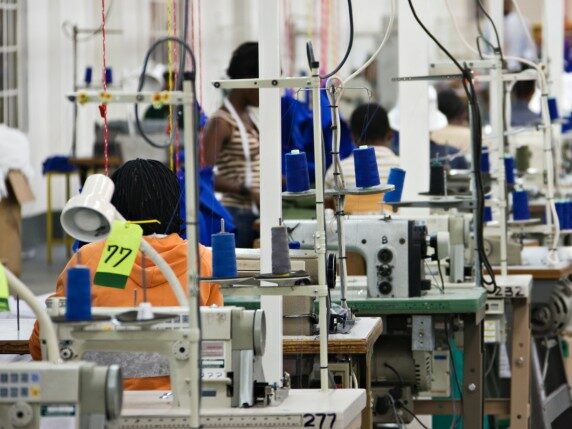Fast fashion retail giant Boohoo is facing a £100 million lawsuit from a number of their investors, after allegations of modern slavery caused a dip of over £1 billion in the business’ value.
Boohoo’s investors are seeking compensation after allegations of unacceptable working conditions and underpayments were verified in an independent review by barrister Alison Levitt KC in 2020. Boohoo has since introduced ‘Agenda for Change’, a responsible sourcing initiative which sets out pledges to pay its suppliers a fair price for wholesale items and provide them realistic timescales.
The outcome of the independent review indicated that Levitt was ‘satisfied that the allegations about poor working conditions and low rates of pay in many Leicester factories were not merely well-founded but substantially true’.
The report added that Boohoo’s Leicester-based supply chain was ‘inadequate’ due to ‘weak corporate governance’, with Levitt stating that the company ‘capitalised on the commercial opportunities offered by lockdown and believed that it was supporting Leicester factories by not cancelling orders, but took no responsibility for the consequences for those who made the clothes they sold.’
Following this, an investigation launched by the BBC’s Panorama team (airing in November 2023) uncovered that members of staff were found to be lying to their suppliers in an effort to drive down costs and fostering a hostile environment for suppliers by pressuring them to lower wholesale prices.
Senior Employment Solicitor, Ella Bond, shares her perspective on Boohoo’s recent challenges:
The recent BBC Panorama investigation into Boohoo's working practices highlights the critical need for businesses to re-evaluate their supply chain practices, implement robust due diligence, and promote ethical conduct throughout their operations. It is essential to adhere to the principles of responsible sourcing, maintain realistic timescales, and pay suppliers fair prices. This proactive approach will not only help companies stay compliant with modern slavery laws but also safeguard their reputation and customer trust.
Under modern slavery laws, companies are obligated to proactively combat forced labour, ensuring fair wages, safe working conditions, and honouring supplier agreements. Failure to do so carries the risk of legal consequences and severe damage to a company's image.
UK modern slavery laws state that it’s mandatory for companies with a global turnover exceeding £36 million to release an annual statement detailing their anti-modern slavery efforts. However, an increasing number of companies, regardless of their size, voluntarily embrace these reporting requirements – this voluntary compliance not only elevates a company's standing in tender processes, demonstrating a resolute commitment to ethical sourcing, but it also acts as a potent tool to eliminate slavery from supply chains, enhancing both transparency and ethical standards.
Boohoo's recent challenges serve as a poignant reminder of the importance of such measures to ensure ethical business practices.







